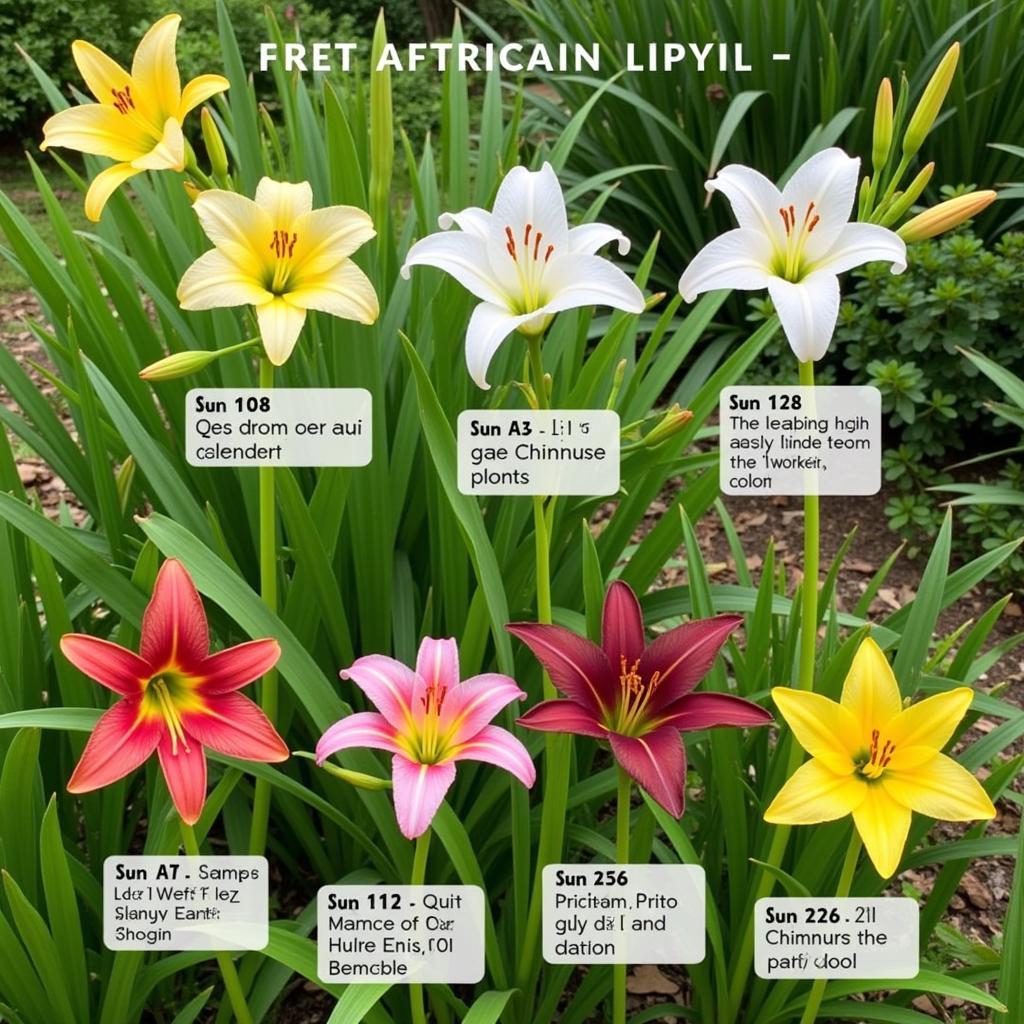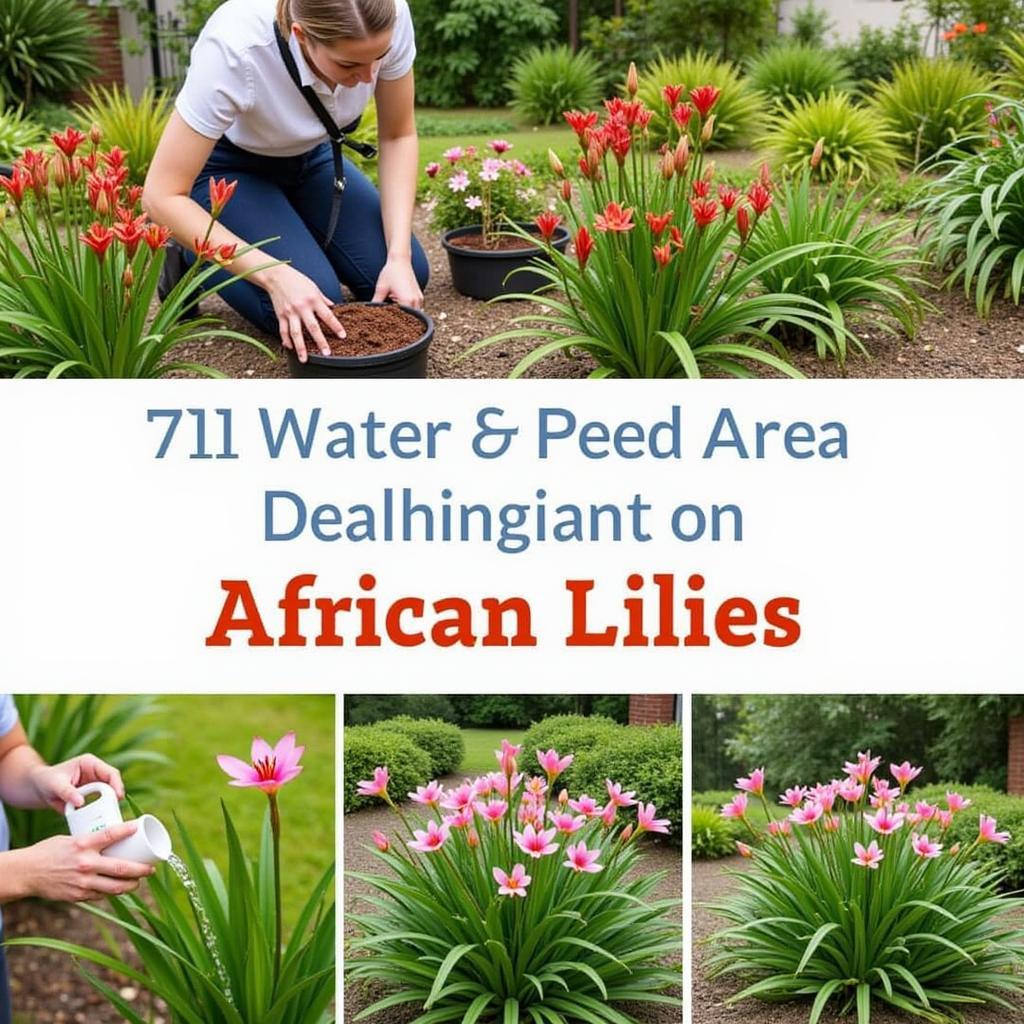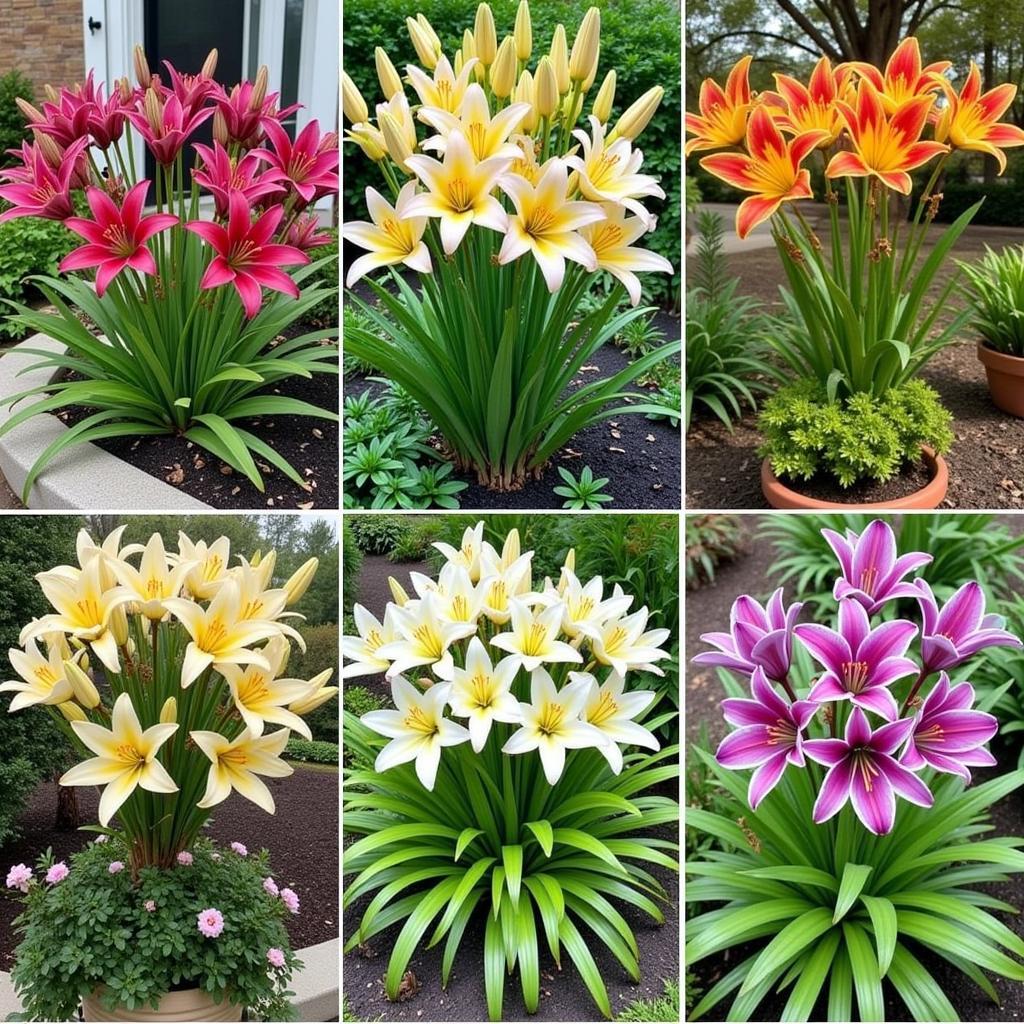Unveiling the Beauty of the African Lily
The African Lily, a captivating flower native to the African continent, boasts vibrant colors and unique characteristics that make it a popular choice for gardens worldwide. From its origins and varieties to its cultivation and care, this article delves into the fascinating world of the African lily, providing you with valuable insights and tips. Let’s explore the allure of this stunning floral gem.
Exploring the Origins and Varieties of the African Lily
The African lily, also known as Agapanthus, is not a true lily but belongs to the Amaryllidaceae family. Native to southern Africa, these plants thrive in warm, sunny climates and are characterized by their striking umbels of blue, purple, or white flowers atop tall, sturdy stems. There are several species and cultivars of African lilies, each with its unique charm. Some popular varieties include the Agapanthus africanus, known for its deep blue flowers, and the Agapanthus praecox, a more compact variety with earlier blooming times. Learning about the different types of African lilies can help you choose the perfect one for your garden. After the introduction, let’s find out more about the African blood lily. You can find more information about it on our african blood lily page.
The Agapanthus inapertus subspecies pendulus boasts gracefully drooping flower heads, creating a dramatic visual effect. In contrast, the Agapanthus campanulatus offers bell-shaped blooms, adding a touch of elegance to any landscape. From compact dwarf varieties to taller, more imposing forms, the diversity of African lilies ensures there’s a perfect fit for every garden setting.
 Comparing Different African Lily Varieties
Comparing Different African Lily Varieties
Cultivating and Caring for Your African Lily
African lilies are relatively easy to grow and maintain, making them a favorite among gardeners. These plants prefer well-drained soil and thrive in full sun to partial shade. Regular watering is essential, especially during the growing season, but avoid overwatering, as this can lead to root rot. Deadheading spent flowers will encourage continuous blooming and prevent the plant from putting energy into seed production. You might also want to explore other beautiful African flowering plants, such as those featured on our african flowering trees page.
Proper fertilization is crucial for healthy growth and vibrant blooms. A balanced fertilizer applied in spring and summer will provide the necessary nutrients. In colder climates, it’s essential to protect African lilies from frost. Mulching around the base of the plant can help insulate the roots and prevent damage. For those in colder regions, consider growing African lilies in containers that can be moved indoors during the winter months.
 Caring for African Lilies in a Garden Setting
Caring for African Lilies in a Garden Setting
African Lily Propagation: Expanding Your Collection
Propagating African lilies is a rewarding way to expand your collection and share these beautiful plants with others. The most common method is division, which involves separating clumps of the plant and replanting them. This is best done in spring or autumn when the plant is dormant. Alternatively, African lilies can be grown from seed, although this method takes longer to produce flowering plants. Do you know much about the African desert rose? You can find great tips on african desert rose care.
When dividing African lilies, ensure each division has a healthy root system and several shoots. Plant the divisions at the same depth they were previously growing and water them thoroughly. For seed propagation, sow the seeds in a well-draining seed-starting mix and keep them moist until germination. Be patient, as it can take several years for seedlings to reach maturity and produce flowers.
Why Choose the African Lily for Your Garden?
African lilies are a versatile and attractive addition to any garden. Their striking blooms add a splash of color and elegance, while their relatively low maintenance requirements make them a practical choice for busy gardeners. They are also excellent for attracting pollinators like bees and butterflies, contributing to a thriving garden ecosystem. For more visual inspiration, check out some beautiful african blood lily pictures.
Dr. Anika Nkosi, a renowned botanist specializing in African flora, notes, “The African lily’s adaptability to various soil types and its resistance to pests and diseases make it a remarkably resilient plant. Its vibrant flowers add a touch of exotic beauty to any garden, captivating both the eye and the spirit.”
Professor Jabari Okoye, a leading horticulturalist, adds, “The African lily’s architectural form and long-lasting blooms make it an ideal choice for borders, containers, and even cut flower arrangements. Its versatility and visual appeal contribute significantly to its popularity among gardeners worldwide.”
 African Lilies in Landscape Design
African Lilies in Landscape Design
In conclusion, the African lily, with its striking beauty and easy care, is a true gem of the African flora. Whether you are a seasoned gardener or a beginner, this captivating plant is sure to add a touch of elegance and vibrancy to your outdoor space. From its diverse varieties to its straightforward cultivation, the African lily is a testament to the beauty and resilience of nature’s creations. Consider adding the African lily to your garden and witness the magic it brings. You can learn more interesting facts about the african jacana facts on our website.
FAQ
- What are the different colors of African lilies? African lilies come in shades of blue, purple, white, and even pink.
- When do African lilies bloom? Most African lilies bloom in summer, but some varieties bloom earlier in spring.
- How often should I water my African lily? Water regularly during the growing season, but avoid overwatering.
- Can I grow African lilies in containers? Yes, they thrive in containers, especially in colder climates.
- How do I propagate African lilies? Division and seed propagation are the most common methods.
- Do African lilies attract pollinators? Yes, they attract bees and butterflies.
- Are African lilies easy to care for? Yes, they are relatively low-maintenance plants.
For further assistance, please contact us at Phone: +255768904061, Email: kaka.mag@gmail.com Or visit us at: Mbarali DC Mawindi, Kangaga, Tanzania. We have a 24/7 customer support team.

